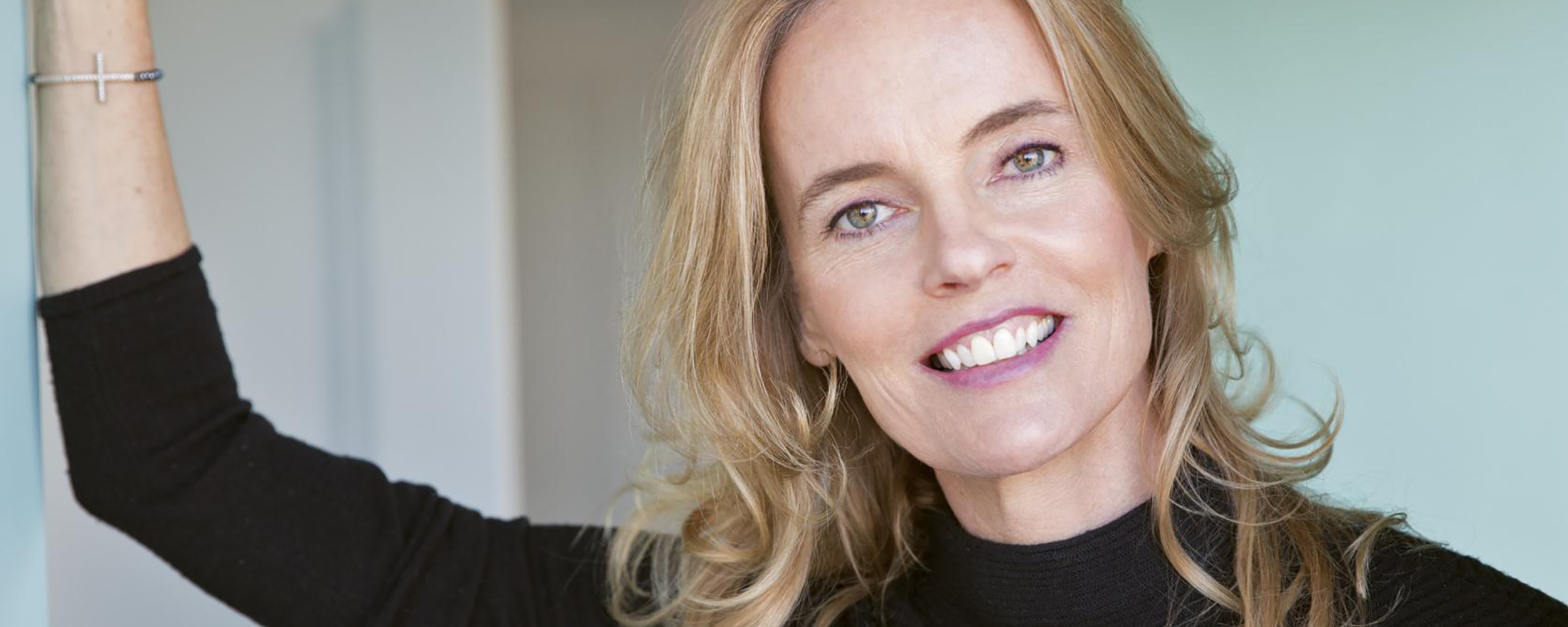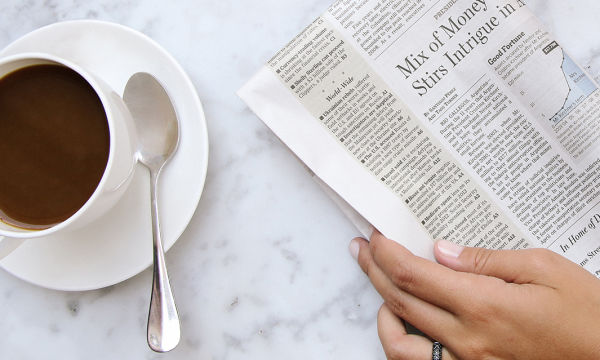Maureen Sherry’s “Opening Belle” Examines Wall Street from a Woman’s Perspective
April 30, 2016 | Filed in: Woman of the Week
At 51, Maureen Sherry has already had two impressive careers. The first was on Wall Street, where she spent twelve years at Bear Stearns and became the firm’s youngest managing director. The second is as a successful author. Her two professional paths converged with the release of her novel, Opening Belle, which tells the story of Belle, a woman navigating the perks and pitfalls that come with a high-flying career as an investment banker—from astronomical year-end bonuses to butt-grabbing coworkers.
Sexism in the workplace is at the center of Belle’s story, which is really Sherry’s story, and which, unfortunately, is many women’s story. Reese Witherspoon bet on that fact when her production company snapped up the film rights just after Sherry sold her manuscript. (But you know the rule: Read the book first.)
Below, we talk to Maureen about her years on Wall Street, her decision to tell her story, and her own evolving priorities when it comes to work versus family. (Did we mention she’s a mother of four?)
When you began your career in the late ‘80s, what drew you to investment banking?
I graduated at a time when everyone wanted to work on Wall Street. The banks were growing like crazy and people were making great money—it just seemed like the most interesting place to be. I actually thought I wanted to do something in publishing or writing, but the only job I could actually get out of school was working for a money manager. It was trial by fire, but once I started to learn about the markets, I became very interested and ultimately ended up on the trading floor. At the time, Bear Stearns had this real cowboy culture—which was great and terrible. It was a meritocracy and you could move up very quickly, but you had to learn to roll with it.
How did women fit into that cowboy culture?
The women who did the best in my area were women who could “take a joke” or look the other way when there were antics going on around you. I don’t think the men I worked with meant to be offensive to women—it was just men performing for men. I distinctly remember this one guy who, if a woman walked by in a short skirt, would lie down on the floor and pretend to look up her skirt. But he would only do that when he had an audience.
Were you braced for that kind of thing when you took the job, or was it a shock?
I didn’t really know to be shocked when I first started. I was naïve. The generation of women who came after mine had definitely talked more about sexual harassment in school; they were more self-aware. For us, we just thought, “Well, this is how business is done.”
It didn’t end up in the book, but there was this one incident where a trader took a shot of my breast milk on a bet—I’d been storing it in a colleague’s mini fridge. A few guys witnessed him do it, and then came by my desk and said, “You probably don’t want to touch that bottle.”
That’s pretty brazen.
People always ask, “Weren’t you horrified?” But actually, I just remember thinking: “What am I going to do with this kid’s bottle for tomorrow?” I was upset by the inefficiency of having to toss the rest of the bottle and not having enough for the next day.
That sounds a lot like Belle, who is hyper-efficient and describes herself as a “world-class compartmentalizer.”
In my life, I found each time I returned to work after having a child, I was even more efficient. It’s like a gun went off: I sat down, I worked, I wasn’t distracted. I was so in the zone, despite the frat-house environment. And that is something I hear constantly from moms who return to work. They’re just more focused, because they have to be.
What was your goal in writing this book?
I wanted to start a conversation. The “glass ceiling club” that the female characters in the book form is based on something that happened to me. It started when this woman I worked with made an admission to a few of us one night at a holiday party. From there, we decided to keep meeting, to keep talking about what we were experiencing at work. At the time, there were four class-action suits happening at other investment banks. We would read about the offenses being cited and think, “Oh, things are far worse at Bear Stearns. It’s only a matter of time until this happens here.” But we also felt loyal to our company. We didn’t want to sue. So we thought, “How can we change the culture here? How do we start open conversations with the guys we work with?” Today, a lot has changed. There are more women’s initiatives, and I think that’s great. But it’s also important to include men in the conversation about gender dynamics in the workplace.
How have people responded to the book?
Among women, it’s inspired them to want to tell their stories. I’ve gotten hundreds of emails, and not just from women in finance, but many in engineering and law and medicine—industries where what I’d call the “unconscious bias” is incredibly prevalent. I’ve also been invited to speak at several investment banks, which I never expected.
Did you always intend for the book to be made into a film?
In my wildest fantasy, maybe. But no! I’ll tell you a funny story. I ended up publishing the book with Simon & Schuster, but another publisher actually offered me more money for it. But there was a hitch: She wanted a Hollywood ending. She wanted the Belle character to end up running a big investment bank. She said to to me, “If you do that, there’s a very good chance you could sell this to Hollywood.” But I just thought it was such a preposterous ending. We will have a woman president before we have a woman running an investment bank, so I wouldn’t do it.
The great thing about working with Reese Witherspoon and her partner Bruna Papandrea is that this is exactly the type of story they want to tell. They want this conflicted, imperfect character, and they want to make you understand what motivates her every day.
At this point, you’ve had two distinct but successful careers on Wall Street and in publishing. How do you define success at this point in your life?
In the beginning of my career, I never questioned the price of money. The long hours didn’t matter. During my years on Wall Street, I witnessed a tremendous increase in compensation within the industry. People who entered making $90,000 were suddenly making $3 million. That was happening all around me, but I would say the happiness level was not commensurate with the jump in income.
I was talking with colleagues one night and someone asked, “Would you still do this job if you were paid 20 percent of what you’re making now?” If your answer is yes, then you’re doing the right job. But if a few years go by and your answer changes, then you need to reexamine your motivation. I loved my work at the time, but today, my priorities have shifted much more towards family and friends. In the end, it comes down to: What is the price of money for you?








